It's that time of the semester again. The library's full, everyone's running on coffee, and the stress is real.
Since the AI hype train first went choo choo, I’ve been on a quest to find the most effective and efficient ways to study.
I know what you might be thinking — AI for studying? I already use ChatGPT. What’s new?
That’s exactly what I thought too… until I stumbled upon a new wave of apps built specifically to make studying easier.
These tools have become my secret weapon, helping me save time, understand complex topics, and retain information like never before.
In this article, I’m sharing my personal list of the best AI tools for studying.
1. Summelio
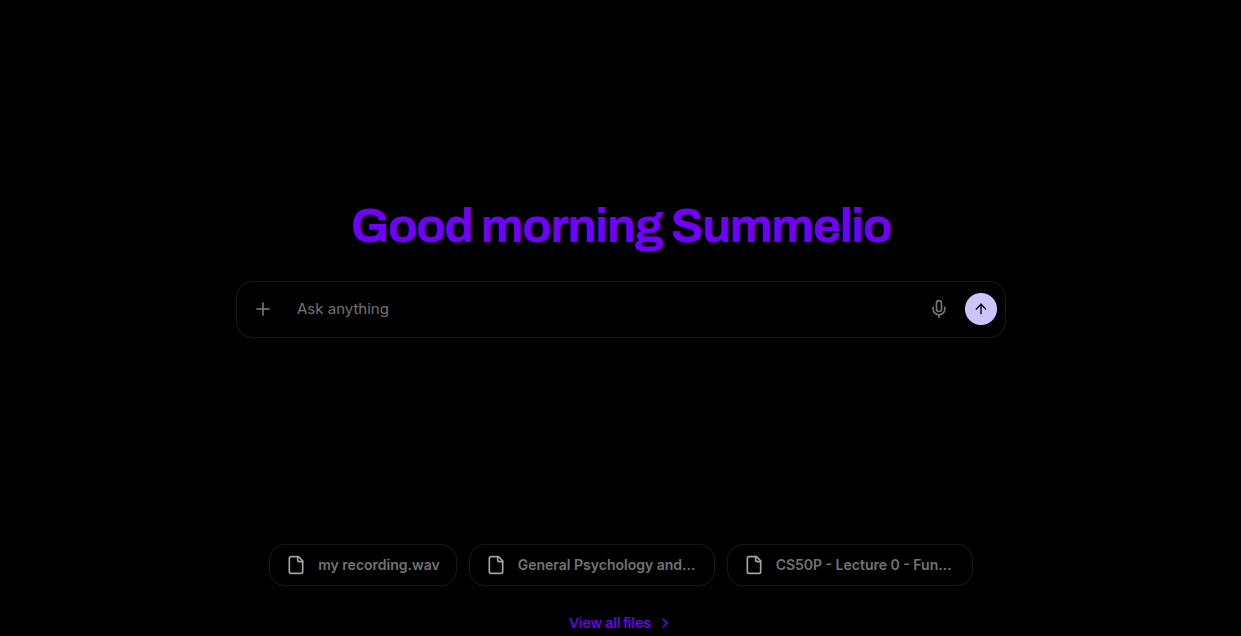
What makes Summelio so special is that it’s not just one tool; it’s a full suite of study tools, all packed into one simple-to-use platform.
It’s the Swiss Army knife of study tools XD
One of Summelio’s standout features is its ability to take any study material or source, such as PDFs, YouTube videos, lectures, or slides, and transform them into a variety of AI-powered tools.
Flashcards

Flashcards are perfect for quick revision sessions and active recall.
You don’t have to spend hours writing them out by hand. They can be generated with just one click, and you can even choose how many you want to create, making the whole process incredibly efficient.
Mind Maps

It doesn’t stop there. Summelio can also create detailed mind maps from your documents. This has been incredibly useful for me as a visual learner (like many others), especially for subjects with complex, interconnected ideas.
Seeing everything laid out visually makes it easier to grasp the bigger picture and understand how different concepts connect.
Personal AI Tutor

Ever wished you had a personal tutor who was available 24/7?
Well, Summelio’s AI tutor is the next best thing.
You can literally "chat with your files" as if they are alive, asking the AI questions about the material, and it will provide explanations and answers based on the documents you've uploaded.
It’s like having a smart A+ study buddy who never gets tired of your questions. This has been especially helpful when I’m struggling with a specific concept and need a different explanation than the one given in the lecture.
AI Podcasts

And for those who, like me, are auditory learners or simply prefer not to read, Summelio has an incredible AI podcast generator.
It transforms your study materials into a podcast episode, so you can listen and learn while commuting, working out, or taking a walk. It’s a fantastic way to make the most of your time and absorb information in a whole new format.
Summaries

Let’s be real, sometimes you just don’t have time to read every page of a dense textbook. Summelio’s AI can condense long documents into concise overviews, highlighting the most important information.
It’s perfect for a quick refresher before class or for getting the gist of a reading when you’re short on time.
Quiz

And to make sure you’re actually retaining what you’ve learned, Summelio can generate quizzes with adjustable difficulty. This is great for testing your knowledge and helping you identify your weak spots.
Honestly, Summelio has become the central hub for all my studying activities.
It’s the first tool I recommend to any student who wants to leverage the power of AI to boost their academic performance.
2. ChatGPT

Of course, no list of AI tools would be complete without mentioning the one and only ChatGPT.
While not specifically designed as a study tool, its flexibility makes it an incredibly powerful asset for any student. I've used ChatGPT in countless ways to enhance my learning.
One of my favorite ways to use ChatGPT is as a personal tutor. I can ask it to explain complex concepts in simple terms, provide examples, or even create analogies to help me understand difficult ideas.
It’s incredibly patient and can explain things in different ways until I finally get it.
ChatGPT is also fantastic for exam preparation. I often feed it my lecture notes or study guides and ask it to generate potential exam questions.
This is a great way to test my knowledge and get a feel for the types of questions that might appear on the actual exam.
You can even ask it to create multiple-choice questions, short answer questions, or even essay prompts.
However, a word of caution: while ChatGPT is incredibly powerful, it's important to remember that it can sometimes make mistakes.Always double-check the information it provides with your course materials to ensure accuracy.
3. Quizlet
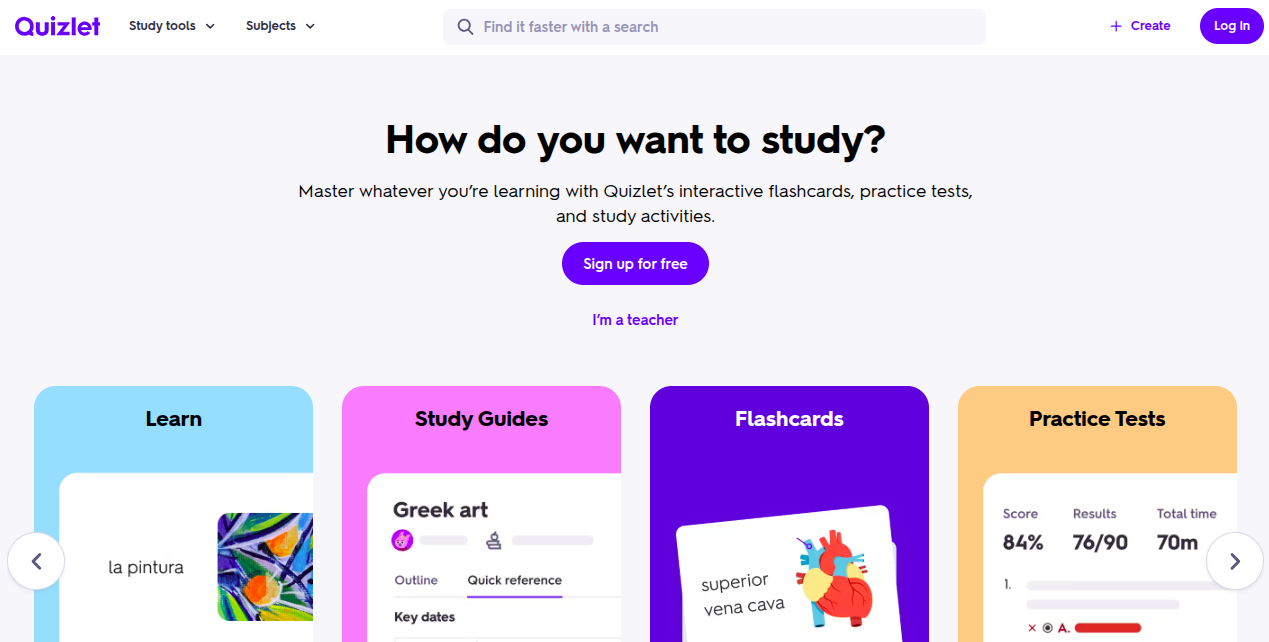
Many of us are already familiar with Quizlet as the best platform for digital flashcards. I’ve been using it for years, but its recent integration of AI has taken it to a whole new level.
Quizlet’s AI features can now help you create study sets more efficiently.
For instance, the "Magic Notes" feature can automatically turn your notes into flashcards, practice tests, and outlines.
But what I find most impressive is the AI-powered learning assistant: Q-Chat.
This feature acts like a tutor, quizzing you on your study sets and providing personalized feedback to help you focus on the areas where you need the most improvement.
The platform also offers various study modes and games that make learning more engaging and fun. From matching games to practice tests, Quizlet has a variety of ways to help you master your material.
4. Grammarly

As a student, writing is a huge part of my academic life.
From essays and research papers to emails to professors, clear and concise writing is essential. This is where Grammarly comes in. While not strictly a study tool in the traditional sense, it’s an essential AI assistant for any student who writes.
Grammarly goes far beyond the basic spell check in your word processor. Its AI-powered engine helps you with grammar, punctuation, style, and tone. It provides real-time suggestions to improve your writing, helping you to sound more professional and articulate. The premium version even offers a plagiarism checker, which is a lifesaver for ensuring the originality of your work.
For academic writing, Grammarly can be a game-changer. It helps you avoid common grammatical errors and suggests ways to make your arguments more compelling.
5. Todoist
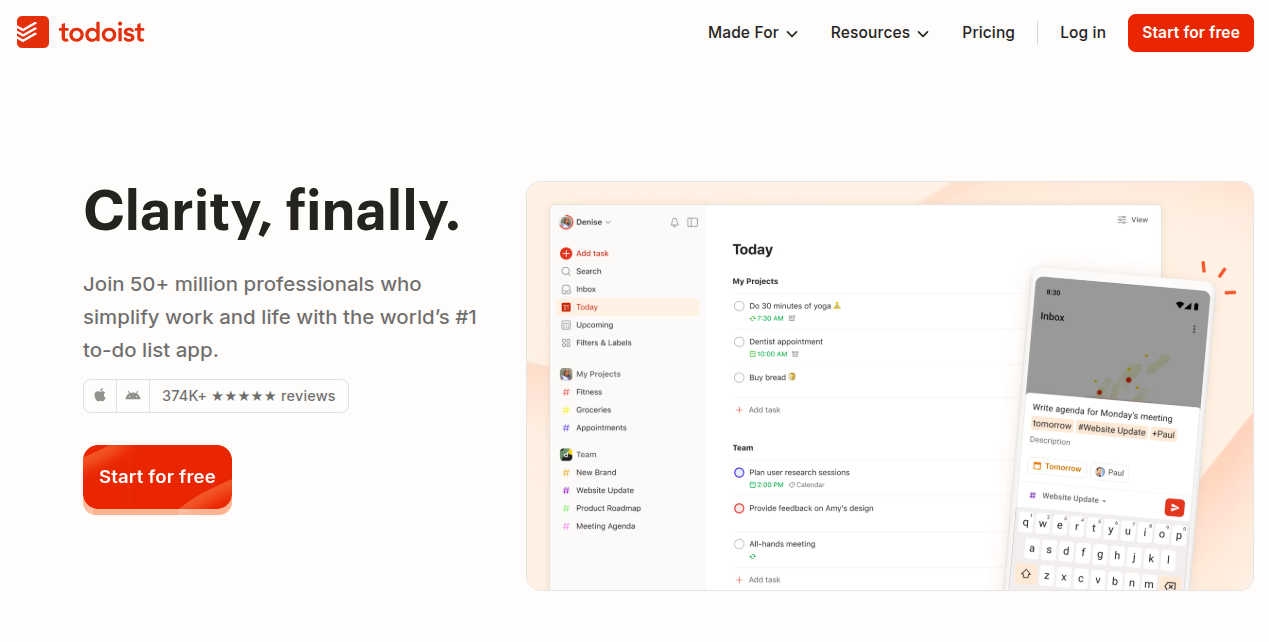
Staying organized is half the battle when it to being a successful student.
With so many deadlines, assignments, and exams to juggle, it’s easy to feel overwhelmed.
This is where a good task management app can make all the difference, and for me, that app is Todoist.
Todoist allows you to create and organize tasks, set deadlines, and prioritize your work. Its clean and friendly interface makes it easy to see what you need to do and when you need to do it.
You can create different projects for each of your courses, and even break down large assignments into smaller, more manageable sub-tasks.
While not a dedicated AI tool, Todoist uses smart features to help you stay on track.
For example, its "Karma" system gamifies productivity, rewarding you for completing tasks and meeting your goals.
The premium version also offers reminders, which are essential for not forgetting important deadlines.
For any student looking to get a better handle on their workload, Todoist is a must-have.
6. Otter.ai
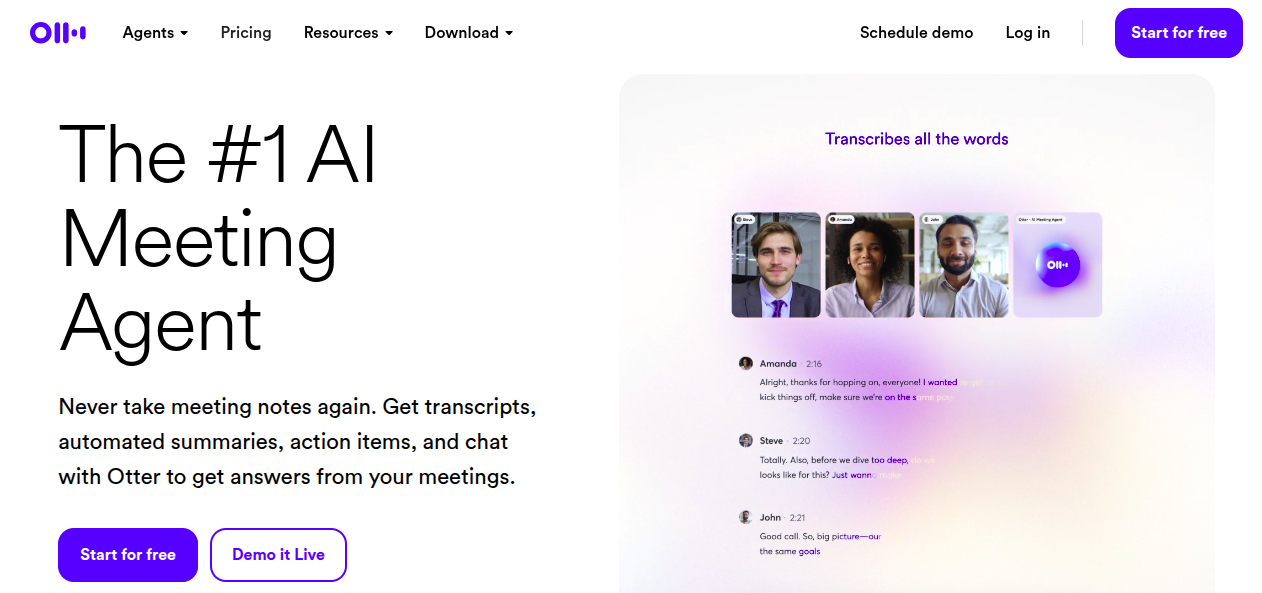
Have you ever found yourself struggling to keep up with a fast-talking professor during a lecture? Or wished you could review a lecture without having to re-watch the entire recording?
If so, you need to check out Otter.ai.
Otter.ai is an AI-powered transcription service that can transcribe your lectures in real-time.
You can simply record the lecture on your phone or laptop, and Otter.ai will create a written transcript that you can review later. This is incredibly helpful for ensuring you don't miss any important information.
One of the coolest features of Otter.ai is its ability to identify different speakers and add timestamps to the transcript.
This makes it easy to find specific parts of the lecture when you're studying. The free plan offers a generous amount of transcription minutes each month, making it a very accessible tool for students.
7. Forest

In today's hyper-connected world, distractions are everywhere.
From social media notifications to the endless rabbit hole of the internet, staying focused while studying can be a real challenge. That's where the Forest app comes in.
Forest is a unique and beautifully designed app that uses a gamified approach to help you stay focused.
The concept is simple: when you want to start a study session, you plant a virtual tree in the app. The tree will continue to grow as long as you stay off your phone. If you leave the app to check your notifications or browse social media, your tree will wither and die.
This simple yet effective mechanism provides a powerful incentive to stay on task. Over time, you can build a beautiful virtual forest of all the trees you've grown during your focused study sessions. Forest helped me to build better study habits and resist the temptation of my phone.
8. Anki
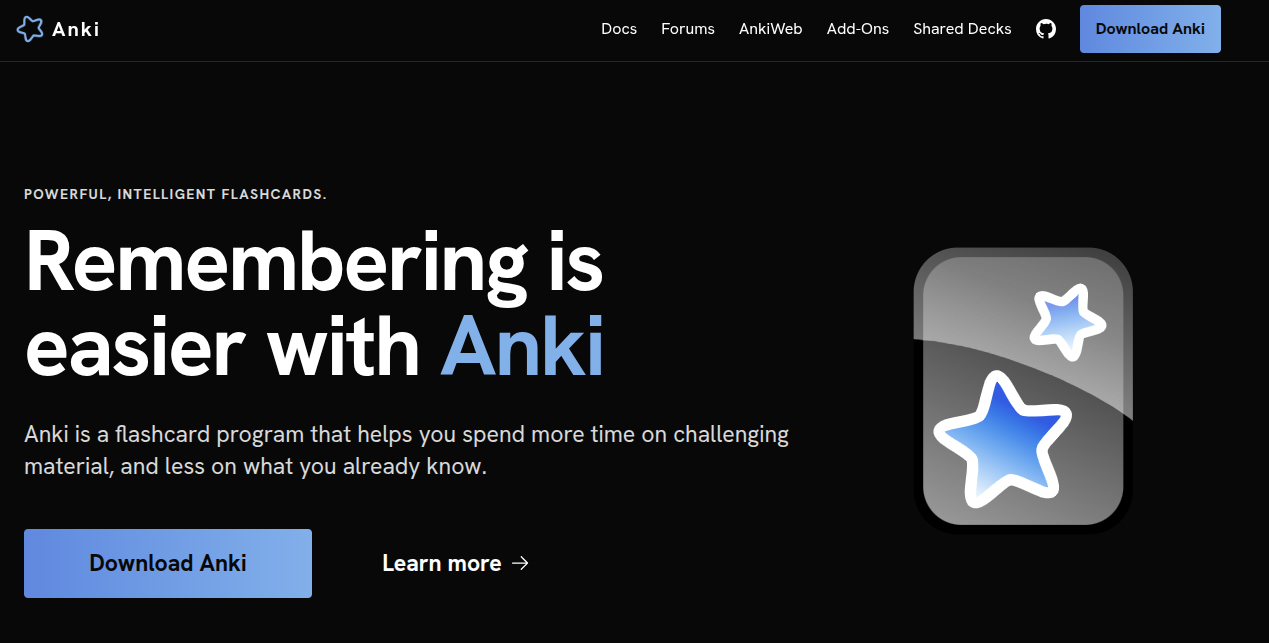
For subjects that require a lot of memorization, like languages or medical terminology, Anki is an absolute must-have.
Anki is a flashcard app that utilizes a powerful learning technique called spaced repetition.
The idea behind spaced repetition is that you review information at increasing intervals over time.
This helps to transfer information from your short-term memory to your long-term memory.
Anki's algorithm determines the optimal time to show you a flashcard again, based on how well you remembered it the last time you saw it.
While Anki has a bit of a learning curve compared to some of the other apps on this list, the payoff is huge.
By using Anki consistently, you can memorize vast amounts of information with incredible efficiency. There is a large and active community of Anki users who share pre-made decks for a wide variety of subjects, which can save you a lot of time.
9. RemNote
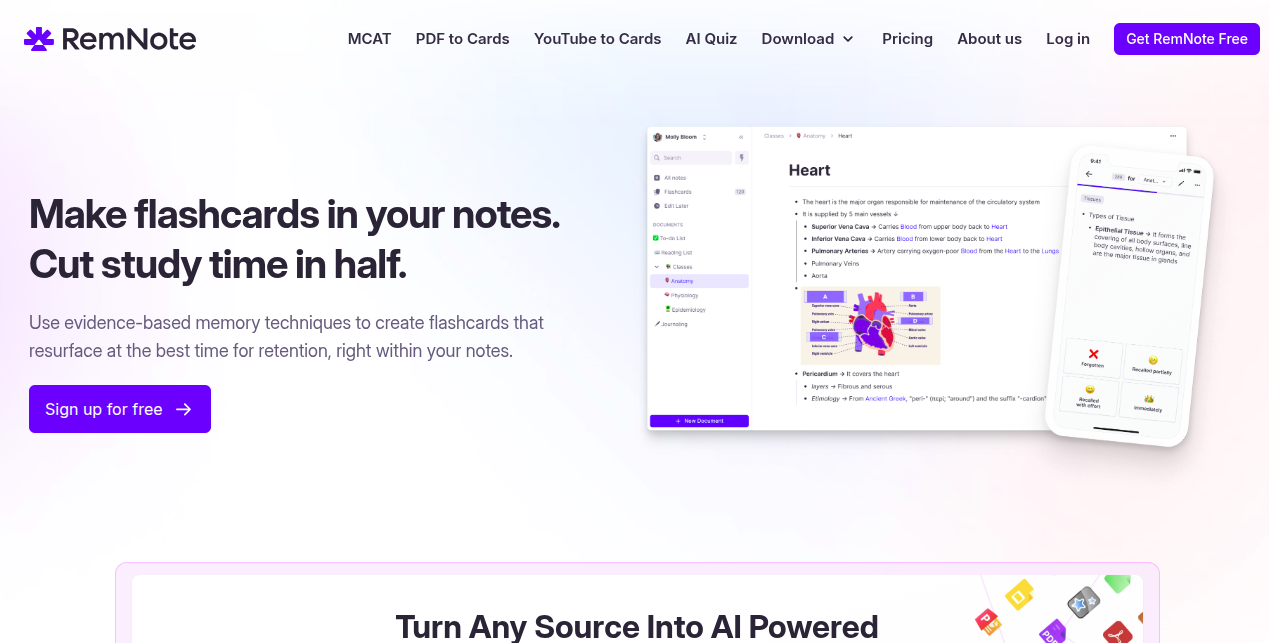
If you're looking for a tool that combines the power of note-taking with spaced repetition, then RemNote is the answer.
It’s a fantastic tool that allows you to create and organize your notes while seamlessly turning them into flashcards for later review.
What I love about RemNote is that it streamlines the process of creating study materials. You can be taking notes in class and, with a simple command, turn a key concept into a flashcard.
This means you’re actively creating your study materials as you learn, which is a huge time-saver.
RemNote also has a powerful linking feature that allows you to create a personal knowledge base. You can connect related ideas and concepts, creating a web of knowledge that helps you to see the bigger picture.
This is incredibly useful for understanding complex subjects and for making connections between different topics.
These are just a few of the incredible AI tools that are out there to help you on your academic journey.
The world of education is constantly evolving, and these innovative platforms are at the forefront of that change.
By using these tools, you can not only make your studying more efficient but also more engaging and effective.
So, next time you're feeling overwhelmed by your coursework, I encourage you to give some of these AI tools a try. You might be surprised at just how much they can help you unlock your full academic potential. Happy studying